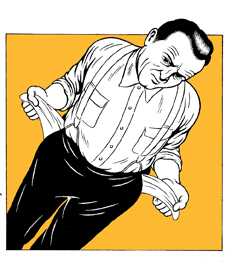Burden Heavy on Landlords of Multifamily Apartment Buildings
By Daniel Geiger October 9, 2012 7:15 am
reprintsReal estate taxes have long been a source of ire for landlords in the city.
The city’s assessment process for commercial buildings has continually bumped up valuations for office buildings citywide over the past decade, interviews with real estate professionals and a review of data show. The result has been that tax collections on the industry have risen from about $4 billion in 2001 to $7.6 billion today, all while the tax rate—a number that is politically sensitive and which officials hence are loath to trifle with—has remained essentially the same, real estate analysts insist.
 The situation has left many landlords feeling like the city’s golden goose for revenue. Even while real estate values plummeted during the recession, taxes on the industry continued to rise, or at best, remained stagnant but never retreated.
The situation has left many landlords feeling like the city’s golden goose for revenue. Even while real estate values plummeted during the recession, taxes on the industry continued to rise, or at best, remained stagnant but never retreated.
The issue is perhaps even more pronounced for residential property, where landlords of multifamily rental apartment buildings say they are being unfairly saddled with the brunt of the tax burden as compared to co-ops, condos and single family homes. Even a back-of-the-napkin calculation would appear to show that something is indeed awry in the way the city assesses such buildings.
Take a notable co-op building such as The Dakota, a storied residence on the Upper West Side where apartments routinely sell for millions of dollars. The building in 2012 was valued at a paltry $65 million, at least a tenth of what most real estate experts say a true valuation of the building should be and well below what the city would appear to assess a comparable rental building.
“When you look at a number like that, it really does look like it was cooked up,” Eric Olson, a tax attorney with the firm Akerman Senterfitt told The Commercial Observer.
In general co-ops and condos pay about $10 to $12, most landlords say, while rental buildings meanwhile pay far higher taxes in the $20s per square foot. Members of the real estate industry say the inequality is baldly political, a move by officials to avoid saddling properties where the tax burden is transparent and sticking the bill on rental properties—which charge rent and where most tenants aren’t aware of the percentage of it that goes to taxes.
“If you started raising taxes on co-op and single family homes there would be tremendous political repercussions,” one residential landlord said. “So instead the city puts it unfairly on rental buildings where tenants don’t know what the taxes are. It’s gotten to the point where taxes account for 30 percent of rent.”



